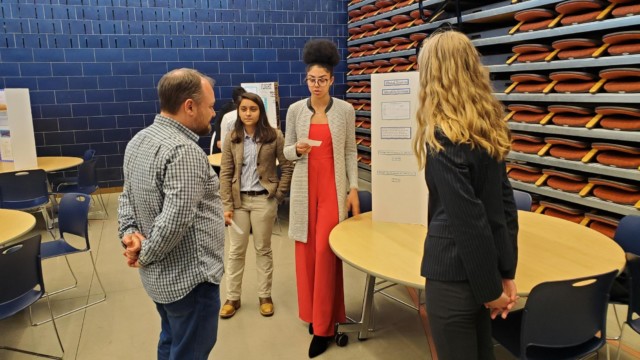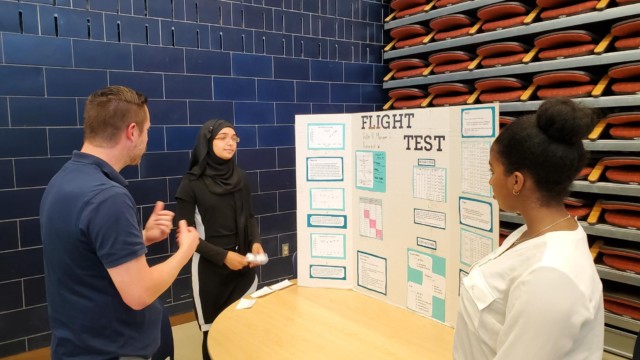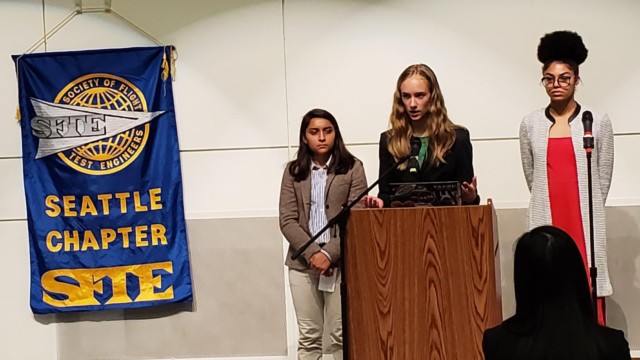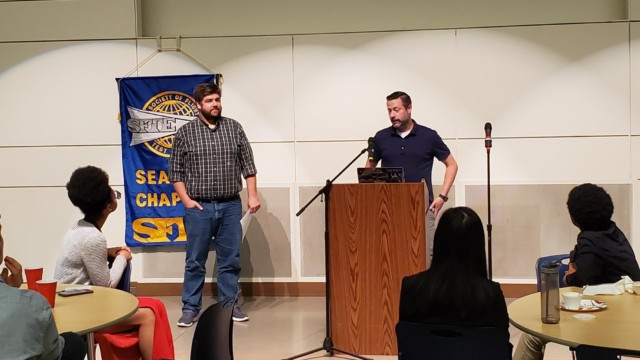On Wednesday, June 19th, the Seattle SFTE Chapter held its 6th annual STEM outreach dinner meeting at Raisbeck Aviation High School.
The Seattle Chapter has had a close relationship with this school for many years by providing judges, guest speakers, and advisors to the faculty for their aviation-related student projects. The ninth-grade students participated in a ten-week flight test project that used takeoff flight testing as a backdrop to understanding physics concepts such as Newton’s Laws, and both the Kinematic and Lift equations. Students used the desktop flight simulator XPlane to conduct takeoff testing of several airplane models. Variables such as gross weight, flap setting, temperature, wind, etc., were manipulated to determine their effect on takeoff distance. Takeoff distance was determined by finding the acceleration of the airplane and dividing by the time of acceleration to find distance.
The event started with several student groups lined up at tables in the event room with posters of their presentations. SFTE members and families mingles and listened to student explanations and test results. The members were quite impressed with the level of understanding exhibited by the students and the students were thrilled that professional flight test engineers took an interest in the project. After dinner, a student group selected by the teacher presented their test to all the attendees.
The featured speaker for the evening was Brian Jones, a flight test engineer with the Boeing Company, who gave the same presentation that he had given the previous week at the SFTE International Symposium in Toulouse, France. Fellow Boeing flight test engineer Kevin Welch helped with the presentation, standing in for co-author Hunter Bloch, who unfortunately could not attend the event because he was in the middle of a move to Europe to start a new job. The presentation focused on a remote crosswind testing trip where the test crew found themselves literally stuck to the ground in the subfreezing weather, after several days of blowing snow (and no testing!) froze the wheels. The primary takeaway was that Situational Awareness is not just for test conditions… the crew had to think creatively about what resources they had available to solve the problem and get back to Seattle. Another lesson learned included some good tips on planning tests outside normal weather conditions, and the challenges of planning short-notice remote test trips in general. Following the presentation, the students asked several good questions about the testing and the trip.
See the pictures below of this entertaining and educational event.




